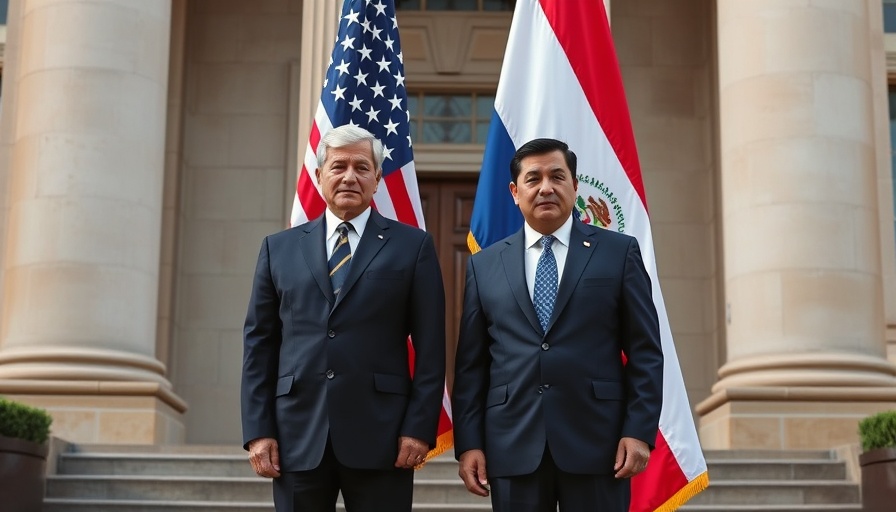
The Controversy Around Presidential Declarations
In a political landscape where accusations fly, President Donald Trump finds himself at the center of a storm over claims that he has defied a Supreme Court ruling. This broad assertion, made by critics like Yale history professor Timothy Snyder, hinges on the case of Kilmar Abrego Garcia, a Salvadoran national recently deported. Critics argue this action represents a troubling disregard for judicial authority, while supporters suggest it's within the president's purview. Analyzing this issue reveals deeper implications concerning immigration policies and presidential power.
Understanding the Fabric of the Case
The case of Garcia is emblematic of the complex intersection between U.S. immigration policy and judicial oversight. Garcia’s deportation has sparked discussions not only about legality but also about moral responsibility. Critics have notably labeled the conditions in El Salvador as a 'gulag', provoking outrage about the treatment of deportees. However, the reality of this situation presents a nuanced narrative: while García’s plight influences public emotions, the legal framework surrounding deportations remains intact, grounded in established regulatory practices. It’s essential to differentiate lawful presidential actions from perceived moral failings.
The Role of Public Narrative in Politics
Public narratives surrounding deportations can greatly influence political dynamics. The portrayal of President Trump defying court rulings feeds into a larger discourse about state power and individual rights. In many ways, political outcomes hinge on rhetoric as much as legal realities. Snyder's framing of the situation as 'state terror' emphasizes the gravity of deportations, but it's essential to remember that both sides leverage dramatic language to mobilize support and challenge opponents.
A Closer Examination of Immigration Policy
Examining the current immigration landscape offers vital context to Garcia's case. Policies over the last few decades have shifted dramatically, often reflecting the prevailing political climate. Trump's stance on immigration is consistent with a broader shift toward stricter enforcement, yet it raises questions about balancing authority with human rights. Even as simple numbers suggest a decrease in illegal crossings, the human stories behind them complicate these statistics. The challenge lies in addressing policy through a compassionate yet realistic lens.
Looking Forward: What’s Next for Immigration Policy?
The future of U.S. immigration policy may hinge on upcoming elections and prevailing public sentiments. As political parties grapple with these profound issues, policies could either reinforce the status quo or advocate for reform. Importantly, debates will likely revolve around the narrative of 'law and order' versus humanitarian concerns, positioning Garcia’s case within a broader historical context. What remains to be seen is how public demand will inform policy shifts, as voters express their opinions on these emotionally charged subjects.
What This Means for Citizens and Voters
For residents, particularly top wage earners in cities like Philadelphia, the implications extend into economic realms. Understanding immigration policy is crucial not just from a human rights standpoint, but also for its economic potential. Effective immigration policies could boost the local workforce or impact various sectors within the economy. As citizens engage with these discussions, they are encouraged to remain informed on the shifting narratives and the realities of policymaking.
The Importance of Responsible Discourse
As the nation navigates these complex waters, responsible discourse remains critical. Engaging thoughtfully with immigration issues helps combat misinformation and enhances public understanding. It's imperative to delineate between political theater and essential truths, empowering voters to make informed decisions based on factual contexts. This engagement fosters a healthier political climate, crucial for addressing sensitive issues like immigration.
 Add Row
Add Row  Add
Add 




Write A Comment